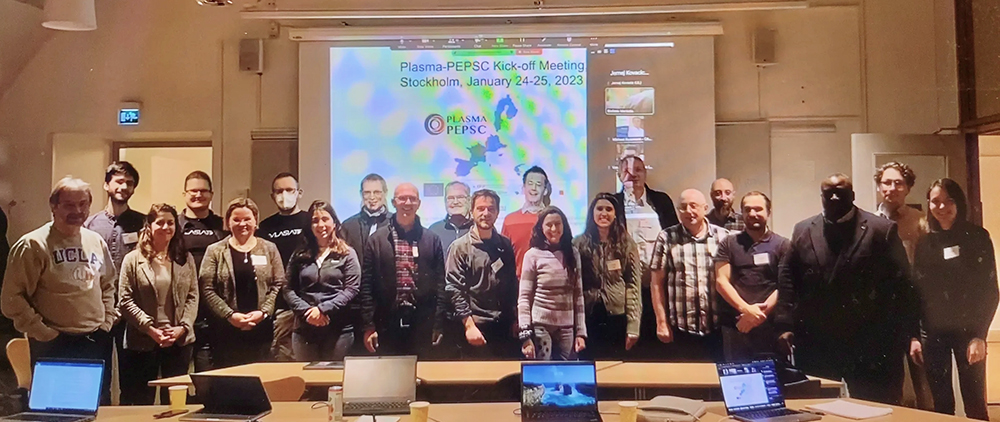Plasma-PEPSC CoE: Advancing Plasma Science with Exascale Computing
Stefano Markidis, PDC

Led by the KTH Royal Institute of Technology, with Dr. Markidis as the coordinator, the EuroHPC Plasma Exascale-Performance Simulation Centre of Excellence (Plasma-PEPSC CoE) unites ten European partners in a collaborative effort to lead plasma science into the era of exascale computing. With a budget of 7.9 million euros, Plasma-PEPSC aims to drive scientific breakthroughs in plasma science’s most significant challenges (fusion energy, accelerator devices and space physics) through cutting-edge hardware and software advancements. Plasma-PEPSC started on January 2023 and will last for four years.
Plasma science has long been at the forefront of high-performance computing (HPC), driving innovation in both hardware and software domains. The overarching goal of Plasma-PEPSC is to take this development to the next level, enabling unprecedented simulations on current pre-exascale and future exascale platforms across Europe. Four flagship plasma codes with a large user base – BIT, GENE, PIConGPU, and Vlasiator – serve as the focal points of the centre of excellence. By maximising their parallel performance and efficiency, we aim to achieve breakthroughs in controlling plasma-material interfaces, optimising magnetically confined fusion plasmas, designing next-generation plasma accelerators and predicting space plasma dynamics within the Earth’s magnetosphere.
Plasma-PEPSC is built upon a foundation of algorithmic advances, encompassing load balancing, resilience, and data compression techniques. Additionally, we employ state-of-the-art programming models and libraries, such as MPI, accelerator and data movement APIs and runtimes, and in-situ data analysis tools. Through an integrated HPC software engineering approach, we deploy, verify, and validate extreme-scale kinetic plasma simulations that will set a community standard. To ensure seamless integration and the pursuit of excellence, Plasma-PEPSC adopts a continuous and integrated co-design methodology. We are actively engaged in providing and receiving direct input relating to the design and development of the European Processor Initiative (EPI) processor and the RISC-V accelerator and investigating quantum computing approaches for plasma simulations.
As we embark on this journey, we invite you to stay connected with the Plasma-PEPSC project at plasma-pepsc.eu as we will share our progress with the HPC community through updates and collaborations.

